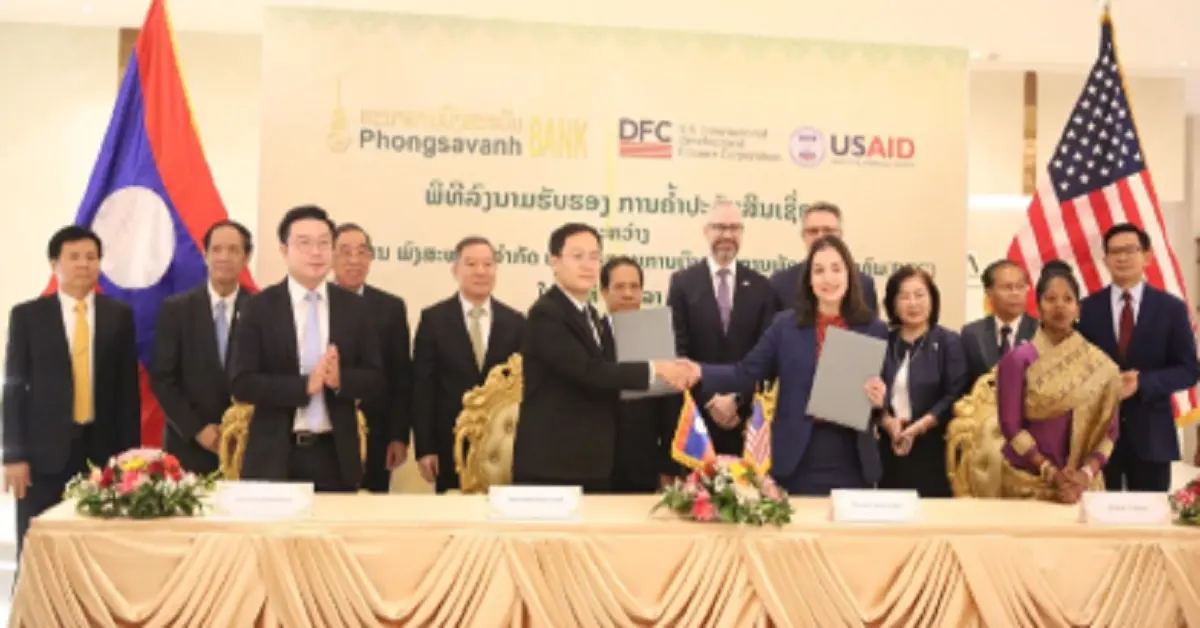Introduction to the Phongsavanh Group
Overview of the Company
The phongsavanh group government sanctions, a prominent conglomerate in Laos, has made significant contributions to the economic development of the country. Known for its diverse operations, the group spans industries such as banking, petroleum, logistics, and more. Founded on a vision of innovation and growth, it has become a cornerstone of the Laotian economy.
Industries and Operations
The group operates in sectors ranging from financial services, where it runs one of Laos’ leading banks, to energy distribution and real estate. Its expansion into international markets reflects its ambition to position itself as a key player in Southeast Asia’s economic landscape.
The Concept of Government Sanctions
Definition and Purpose of Sanctions
Government sanctions are measures imposed by one nation or a group of nations to restrict the economic activities of individuals, businesses, or countries. Sanctions are often used as tools to enforce international laws, deter illicit activities, or address human rights violations.
Types of Sanctions Imposed by Governments
Sanctions can take various forms, including trade restrictions, asset freezes, travel bans, and financial prohibitions. Each type targets specific activities, aiming to exert pressure without resorting to armed conflict.
Phongsavanh Group and Recent Government Sanctions

Context of the Sanctions
Timeline and Events Leading to the Sanctions
The sanctions against the phongsavanh group government sanctions followed investigations alleging non-compliance with international regulations. Reports suggest that concerns emerged around the group’s financial dealings and partnerships.
Entities and Individuals Involved
Key individuals within the group’s management and associated entities faced scrutiny. The allegations ranged from financial irregularities to connections with sanctioned individuals abroad.
Reasons Behind the Sanctions
Allegations and Evidence
Governments imposing sanctions cited evidence of money laundering and questionable transactions. While details remain under investigation, these claims have damaged the group’s reputation.
International Concerns and Impacts
The group’s alleged actions raised red flags among international regulatory bodies, prompting phongsavanh group government sanctions that disrupted its global partnerships.
Effects of the Sanctions on Phongsavanh Group
Immediate Financial and Operational Impacts
Restricted Access to Financial Systems
With sanctions in place, the group faced challenges in accessing international banking systems, crippling its ability to conduct cross-border transactions.
Decline in International Trade
Sanctions hindered the group’s ability to trade internationally, resulting in significant revenue losses.
Long-Term Implications
Reputation and Investor Confidence
The sanctions caused a decline in investor confidence, as stakeholders questioned the group’s compliance and governance practices.
Compliance and Regulatory Changes
To address the phongsavanh group government sanctions, the group had to overhaul its internal controls, adopting stricter compliance frameworks to meet international standards.
Broader Impacts on the Economy and Stakeholders
Effects on Local Economy
Job Losses and Community Impact
The sanctions led to workforce reductions and financial strain on local communities reliant on the group’s operations.
Effect on Suppliers and Business Partners
Local suppliers and business partners also suffered, as the group’s reduced operations disrupted supply chains and contractual agreements.
Regional and International Relations
Diplomatic Tensions
The phongsavanh group government sanctions exacerbated diplomatic tensions between Laos and the countries imposing restrictions, complicating trade and political negotiations.
Shifts in Business Alliances
The sanctions prompted the group to pivot towards partnerships in regions less influenced by the sanctioning governments.
Phongsavanh Group’s Response and Recovery Strategies

Official Statements and Public Relations Efforts
Denials or Acceptance of Allegations
In its initial responses, the group denied the allegations, highlighting its efforts to comply with local and international laws.
Steps to Regain Trust
The group launched campaigns to demonstrate its commitment to ethical business practices, seeking to rebuild its reputation.
Strategic Adjustments
Diversification of Markets
The group diversified its operations into new markets to mitigate the impact of sanctions and reduce reliance on affected regions.
Strengthening Compliance Measures
Significant investments were made to enhance compliance systems, ensuring adherence to international regulations moving forward.
Conclusion
The sanctions against the phongsavanh group government sanctions serve as a stark reminder of the importance of compliance and transparency in global business. While the immediate impacts have been severe, the group’s proactive measures offer a path forward. This situation underscores the interconnectedness of international regulations and corporate governance, providing valuable lessons for businesses worldwide.
FAQs
- What industries does the Phongsavanh Group operate in?
The group operates in sectors like banking, petroleum, logistics, and real estate, among others. - What are the primary reasons governments impose sanctions?
Sanctions are imposed to address violations of international laws, deter illicit activities, and enforce human rights protections. - How do sanctions affect multinational corporations?
They limit access to financial systems, disrupt trade, and damage reputations, leading to long-term operational challenges. - What can companies do to mitigate the impact of sanctions?
Companies can adopt stricter compliance measures, diversify their markets, and invest in transparent governance practices. - What are the long-term effects of sanctions on the global economy?
Sanctions can reshape trade alliances, disrupt global supply chains, and create economic uncertainties in affected regions.
